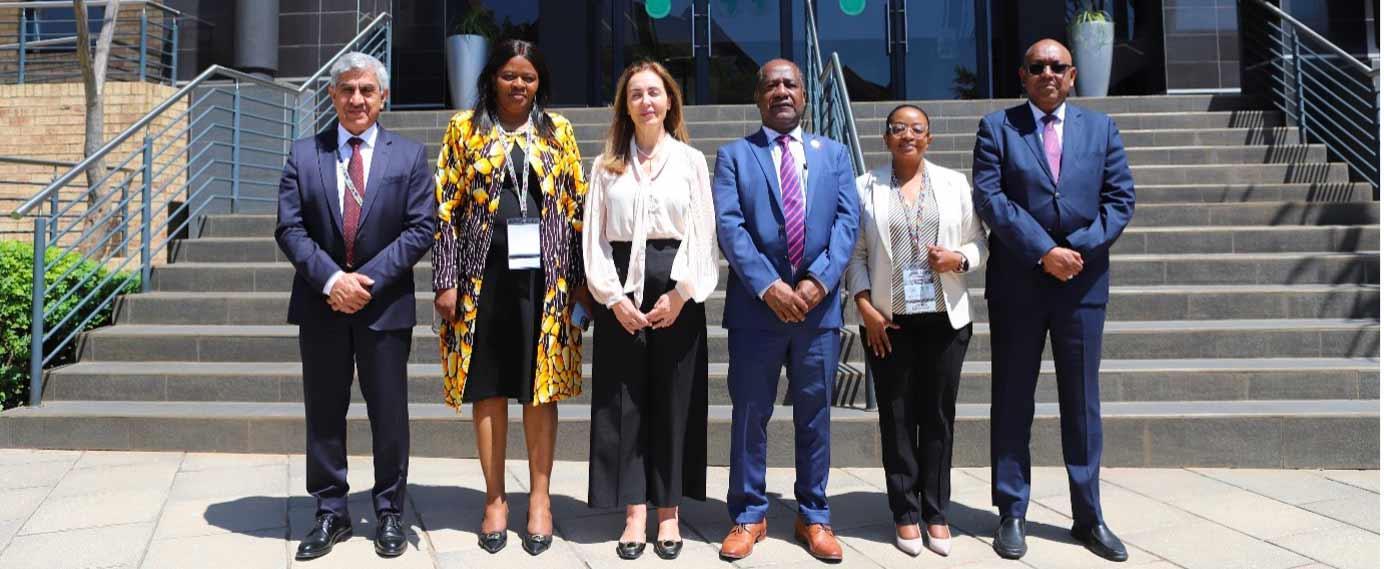Africa-Press – Botswana. The Director of the Southern African Development Community (SADC) Humanitarian and Emergency Operation Centre in Mozambique, Mr Anderson Banda has expressed enthusiasm for the induction course of the emergency response team.
Mr Banda said the initiative would play a pivotal role in achieving the objectives set by the centre.
He said the training programme, which saw 30 participants from SADC member states, focuses on disaster risk management, strengthening simulation systems, and training courses.
He lauded the training as a significant milestone for the SADC secretariat, emphasising the importance of preparedness.
Speaking at the training session in Maun recently, Mr Banda highlighted the centre’s primary goal of coordinating regional disaster preparedness, response, and early recovery efforts to support member states impacted by disasters.
Additionally, he said the centre managed the supply chain of essential equipment and supplies crucial for SADC responders during humanitarian deployments to member states.
Mr Banda emphasised the necessity of a multi-sectoral approach to disaster management, emphasising the involvement of various partners and stakeholders.
He underscored that disasters transcend borders, warranting collaboration among member states to effectively respond to such crises.
Recalling the training’s origins, Mr Banda noted that the process commenced in 2014 with discussions among member states and stakeholders during a SADC meeting in Pretoria.
These discussions emphasised the urgent need for a robust mechanism to enhance disaster risk management across the region, culminating in the ongoing training session.
“The SADC emergency response team is therefore to be a component of the centre established by the SADC council of ministers decision of August 2019,” he said
The team would operate from a regional presence and ensure effective support for the SADC secretariat and member states.
For his part, North West District Commissioner, Mr Thabang Waloka, thanked government and the organisers of the induction for choosing Maun as the host. Ngamiland region is vulnerable to a range of natural disasters.
He mentioned disasters ranging from floods, drought and disease out-break, which he said posed a threat to the development of the community and emphasised that a regional approach to managing the risk was appropriate and necessary.
Governments and partners in the SADC region needed to ensure the community safety and protection of economic assets.
Mr Waloka acknowledged that the training would help with relevant information to augment existing efforts on how communities could be empowered to cushion themselves against the adverse effects of the disaster occurrences.
“Community safety and resilience is fundamental for sustainable development and I thank our government for hosting such an important training in Maun which attracted participants from the 16 SADC member states,” he added.
The inaugural induction course for the SADC Emergency Response Team (ERT) had the following key objectives; develop and set up an integrated ERT management system with a database, with alert and deployment management functions for the ERT based at the SADC house in Gaborone.
The team would also conduct simulation exercises to test effectiveness of their response mechanism.
For More News And Analysis About Botswana Follow Africa-Press






